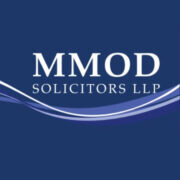Best Ethics and Professional Responsibility Lawyers in Ennis
Share your needs with us, get contacted by law firms.
Free. Takes 2 min.
List of the best lawyers in Ennis, Ireland
About Ethics and Professional Responsibility Law in Ennis, Ireland
Ethics and professional responsibility in law governs how legal practitioners - solicitors and barristers - must behave when advising and representing clients, dealing with the courts, and managing client money and confidential information. In Ennis, County Clare, the same national rules and standards apply as across Ireland. These rules are set out by regulatory bodies and statutory instruments and cover duties such as client confidentiality, avoiding conflicts of interest, honesty with the court, proper handling of client funds, competence, and continuing professional development. If an alleged breach occurs it can lead to client remedies, professional discipline, or civil claims for negligence or breach of contract.
Why You May Need a Lawyer
People seek legal advice in ethics and professional responsibility for several reasons:
- To make a formal complaint about a solicitor or barrister for alleged misconduct or poor professional practice.
- To bring or defend a professional negligence claim where legal advice or conduct led to loss or damage.
- To respond to a disciplinary investigation or hearing initiated by the Law Society of Ireland, the Bar of Ireland, or a regulatory authority.
- To obtain advice about potential conflicts of interest, confidentiality obligations, or whether a legal adviser has acted improperly in a matter involving you.
- To recover wrongly retained or misapplied client funds, or to pursue claims related to misuse of trust accounts.
- To get guidance on ethical issues that arise during a transaction or dispute so you or your business comply with legal obligations - for example anti-money laundering checks and reporting duties.
Local Laws Overview
The key legal and regulatory framework relevant in Ennis mirrors that across the Republic of Ireland and includes:
- Solicitors Acts and Rules - The Law Society of Ireland establishes professional conduct rules and a code of conduct for solicitors, covering client care, fees, conflicts of interest, client account rules, and disciplinary procedures.
- Bar of Ireland Code of Conduct - Barristers are regulated by the Bar of Ireland and must follow its professional rules and disciplinary regime.
- Legal Services Regulation Act 2015 - Establishes the Legal Services Regulatory Authority and provides oversight of access to legal services, consumer protection measures and certain regulatory functions.
- Statutory obligations - Solicitors and barristers are subject to statutory duties including anti-money laundering and counter-terrorist financing regulations, reporting obligations for suspicious transactions, and data protection law governed by the Data Protection Commission.
- Civil law - Professional negligence claims are generally pursued in the civil courts. The Statute of Limitations typically applies - commonly 6 years for actions in contract or tort from the date of damage or from discovery under the discovery rule - but the exact time limit can vary by circumstance.
- Disciplinary sanctions - Where misconduct is proven sanctions can include reprimand, fine, suspension or being struck off the roll of solicitors or removed from the Bar list.
Frequently Asked Questions
What counts as professional misconduct by a solicitor or barrister?
Professional misconduct covers a range of behaviors including dishonesty, deliberate failure to follow client instructions, serious breaches of client confidentiality, misuse of client funds, gross incompetence, breach of court orders, and serious conflicts of interest. Lesser disciplinary issues can include poor client care or failure to comply with procedural rules.
How do I make a complaint about a solicitor in Ennis?
Start by gathering all relevant documents and correspondence. You should initially raise your concern with the solicitor or firm - many matters are resolved by complaint and remediation. If you remain unhappy you can make a formal complaint to the Law Society of Ireland about conduct issues, or pursue civil action for professional negligence. Keep copies of all records and note dates and witnesses.
Can I sue for professional negligence and what is required?
Yes. To succeed you generally must show that the practitioner owed you a duty of care, breached that duty by falling below the standard of a reasonably competent practitioner, and that you suffered quantifiable loss caused by that breach. Evidence typically includes engagement letters, correspondence, expert evidence on standard of care, and proof of loss.
What time limits apply to claims or complaints?
Time limits vary. Civil claims for negligence are subject to limitation periods - commonly six years for contract or tort, with the discovery rule potentially extending the start date. Disciplinary complaints to regulators are often subject to their own procedures and timeframes. You should seek advice promptly so you do not lose rights by delay.
Will making a complaint stop my underlying case or matter?
Generally no - a complaint about professional conduct will not automatically pause unrelated legal proceedings. If your case is ongoing you should advise the court or the other relevant parties of any impact carefully through your legal adviser. In some circumstances a regulator or the court may order a temporary step to protect clients such as restraining access to trust funds.
What remedies can I expect if a solicitor acted improperly?
Remedies depend on the issue. For misconduct you can seek investigation and disciplinary sanctions. For losses you can pursue damages through the civil courts. You may also obtain an account or recovery of misapplied client funds, or agree a settlement with the practitioner. In some cases mediation or alternative dispute resolution provides a quicker resolution.
Are there cost supports or legal aid for professional negligence or disciplinary matters?
Legal Aid is available for certain civil matters and for those who qualify financially and on merit; however coverage for professional negligence or disciplinary defence is limited. Many firms offer an initial consultation. Discuss costs, funding options and whether a conditional fee or adverse costs insurance is available for your case.
Who regulates solicitors and barristers in Ireland?
Solicitors are regulated by the Law Society of Ireland and subject to its rules and disciplinary processes. Barristers are regulated by the Bar of Ireland. The Legal Services Regulatory Authority also has oversight responsibilities and works to protect consumers of legal services.
Can a regulator compel compensation for loss?
Regulators primarily impose disciplinary sanctions and may facilitate complaints handling. They do not usually award civil damages - compensation for loss is normally sought through civil proceedings against the practitioner or by settlement. Regulators may, however, make recommendations or refer matters to the appropriate civil forum.
What should I do immediately if I suspect misuse of my money in a solicitor's client account?
Preserve all paperwork and electronic records. Contact the solicitor or firm to seek an explanation in writing. If you suspect theft or misapplication of funds you should notify the Law Society and consider reporting to the Gardaí if a criminal offence is suspected. Get urgent legal advice to protect remaining funds and consider seeking an account or interim order in the courts if appropriate.
Additional Resources
Below are key bodies and local resources that can assist or provide information:
- Law Society of Ireland - regulator and disciplinary body for solicitors, with guidance on professional conduct and complaint procedures.
- The Bar of Ireland - regulator and professional body for barristers, including conduct rules and complaint processes.
- Legal Services Regulatory Authority - oversight body for legal services and consumer protection in the legal sector.
- Courts Service of Ireland - general information on civil and disciplinary proceedings and court procedures.
- Data Protection Commission - for issues involving client confidentiality and data protection compliance.
- Citizens Information - local Citizens Information Centres provide free information on legal rights, complaints and access to services; there is a Citizens Information Centre in Ennis.
- Legal Aid Board - information on eligibility for legal aid and where assistance may be available.
- Local solicitors and specialist firms in County Clare - for seeking expert local legal representation or specialist advice on professional negligence or disciplinary defense.
- Standards in Public Office Commission - for ethics-related issues involving public representatives and public sector conduct.
Next Steps
If you need legal assistance in Ennis for an ethics or professional responsibility matter, follow these steps:
- Gather and organise documents - engagement letters, correspondence, invoices, bank records and any notes about conversations and dates.
- Make a clear chronology of events - concise timelines help lawyers and regulators assess the core issues quickly.
- Seek an initial consultation with a solicitor experienced in professional negligence or disciplinary matters - ask about fees, likely next steps and potential outcomes.
- Consider whether to raise the issue directly with the practitioner or firm first - many matters are resolved at that stage.
- If a complaint is needed, follow the relevant regulator complaint procedure and be mindful of any time limits.
- Preserve evidence - do not delete e-mails or documents, and keep originals secure.
- If funds are at risk or crime may have occurred, consider notifying the Gardaí and the regulator immediately.
- Discuss funding options - legal aid, insurance, or agreed fee arrangements, and whether expert evidence will be needed.
Note - this guide is for general information only and does not constitute legal advice. For tailored advice about your particular situation consult a qualified solicitor in Ennis or elsewhere in Ireland as soon as possible.
Lawzana helps you find the best lawyers and law firms in Ennis through a curated and pre-screened list of qualified legal professionals. Our platform offers rankings and detailed profiles of attorneys and law firms, allowing you to compare based on practice areas, including Ethics and Professional Responsibility, experience, and client feedback.
Each profile includes a description of the firm's areas of practice, client reviews, team members and partners, year of establishment, spoken languages, office locations, contact information, social media presence, and any published articles or resources. Most firms on our platform speak English and are experienced in both local and international legal matters.
Get a quote from top-rated law firms in Ennis, Ireland — quickly, securely, and without unnecessary hassle.
Disclaimer:
The information provided on this page is for general informational purposes only and does not constitute legal advice. While we strive to ensure the accuracy and relevance of the content, legal information may change over time, and interpretations of the law can vary. You should always consult with a qualified legal professional for advice specific to your situation.
We disclaim all liability for actions taken or not taken based on the content of this page. If you believe any information is incorrect or outdated, please contact us, and we will review and update it where appropriate.









